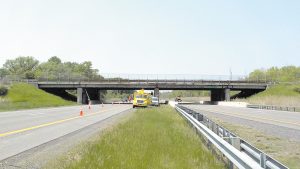New York State’s budgetary shortfalls due to the fallout from the COVID-19 pandemic are substantial and in need of immediate attention. It’s likely we will be short several billion dollars in the coming years, with varied estimates depending on the potential availability of federal aid. There is little disagreement something must be done. However, some […]
Get Instant Access to This Article
Become a Central New York Business Journal subscriber and get immediate access to all of our subscriber-only content and much more.
- Critical Central New York business news and analysis updated daily.
- Immediate access to all subscriber-only content on our website.
- Get a year's worth of the Print Edition of The Central New York Business Journal.
- Special Feature Publications such as the Book of Lists and Revitalize Greater Binghamton, Mohawk Valley, and Syracuse Magazines
[bypass-paywall-buynow-link link_text="Click here to purchase a paywall bypass link for this article"].
New York State’s budgetary shortfalls due to the fallout from the COVID-19 pandemic are substantial and in need of immediate attention. It’s likely we will be short several billion dollars in the coming years, with varied estimates depending on the potential availability of federal aid. There is little disagreement something must be done. However, some of the proposals being discussed by Gov. Andrew Cuomo and the Assembly majority conferences are rather alarming.
The governor [recently] said tax increases may be inevitable even if the federal government provides another round of stimulus funding. This is not the way to solve New York’s financial problems. Taxes were prohibitive and budget problems were prevalent in New York long before the pandemic came.
Especially now, residents and small businesses facing unprecedented economic hardship are hardly in a position to bail out the state. Had the governor and majority conferences not consistently relied on a misguided tax-and-spend approach we would be in a much better position to weather this storm. Instead, they plan to exacerbate the matter by digging deeper into the pockets of hardworking taxpayers at the worst possible time.
We have yet to begin the 2021 legislative session, but Democrats are already rolling out plans to make the state’s cost of living even more oppressive. There is a proposal to add a $3 surcharge on online deliveries in New York City to help bailout the MTA, Assembly Democrats are pushing hard to raise the income-tax rates on high earners, and tolls are going up for non-E-ZPass tag holders. Additionally, Cuomo’s planned tax hike is so vague he hasn’t even identified the goods, services, or program he’s planning on taxing (https://www.wsj.com/articles/new-york-needs-to-raise-taxes-gov-andrew-cuomo-says-11607545030).
Why don’t we start by eliminating the governor’s failed economic-development initiatives or the massive waste across state programs? Every cost-cutting measure, unnecessary line-item expenditure and service efficiency must be exhausted ahead of any conversation about a tax hike. New Yorkers simply can’t take much more of the brunt of the state’s fiscal failures.
Yes, the state has a budget hole we must address, but so, too, we face a massive affordability and outmigration crisis that has been ignored for years. New York has always been quick to pass its problems onto the taxpayers. It was unsustainable before, and it is especially so now as families and community businesses have enough of their own budget problems to worry about. New York has been consistently ranked as one of the worst taxed states in the nation by a number of metrics.
Before embracing tax hikes with open arms, Albany needs to assess where its spending habits can be responsibly reined in and brought under control.
William (Will) A. Barclay, Republican, is the New York Assembly Minority Leader and represents the 120th New York Assembly District, which encompasses most of Oswego County, including the cities of Oswego and Fulton, as well as the town of Lysander in Onondaga County and town of Ellisburg in Jefferson County. Contact Barclay at barclaw@assembly.state.ny.us



